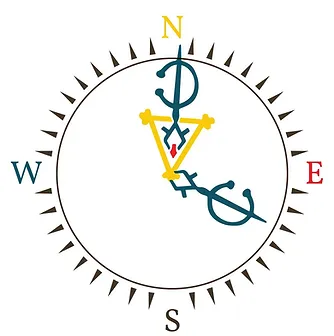Morocco desert tours
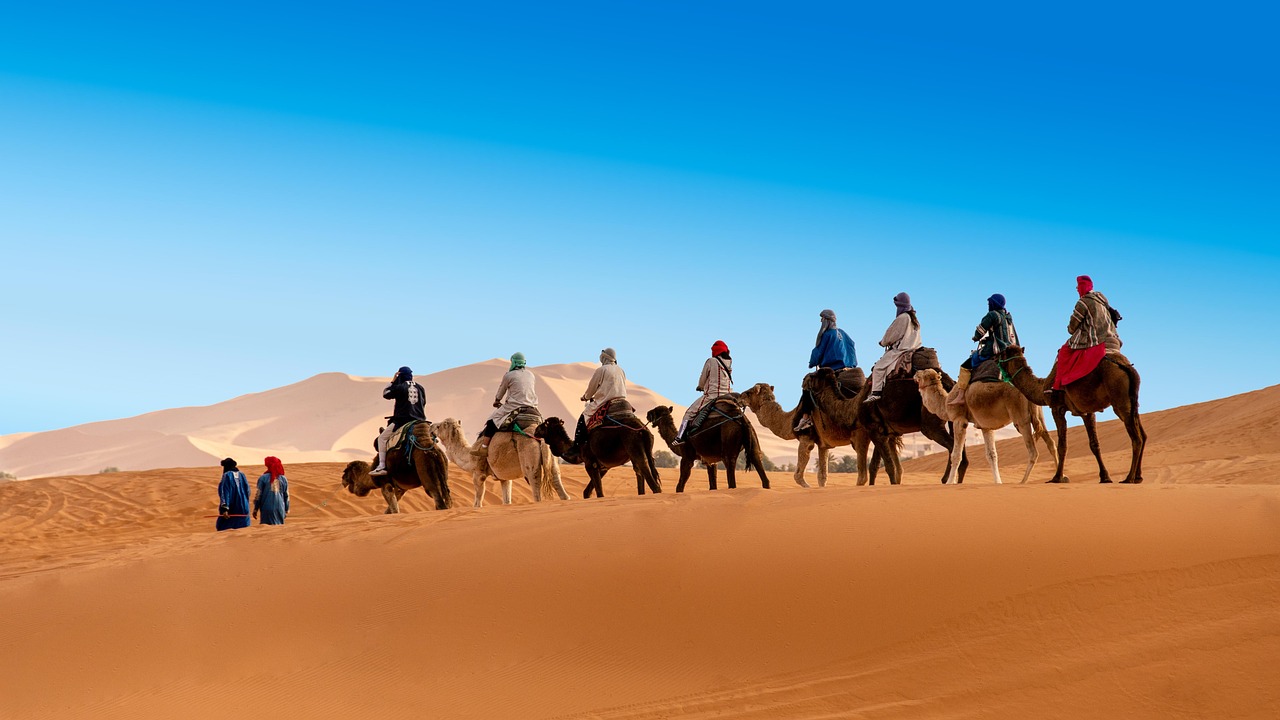
Morocco desert tours offer an unforgettable adventure into the vast and mesmerizing landscapes of the Sahara Desert. And would normally expect from the desert tour of Morocco:
Camel Trekking: Riding on a camel through golden sands, an experience truly enriched as part of the trip to the desert. During your time on the dunes, a trained guide will lead the caravan to help show you around this different side of the desert.
Overnight Camps in the Desert: Spend a starry night in one of the traditional Berber camps. The camps always vary from comfortable tents with all the needed amenities, right up to the bedding and meals. To the dinner around the campfire, travelers enjoy traditional Berber cuisine while listening to the tunes of local music and tales.
Dune Sunrise and Sunset Watching: This is outstanding beauty at the time of sunrise and sunset over the desert dunes. It forms very vibrant changing colors and patterns of the sand, making a show that should be observed best in the tranquility of the desert.
Desert Excursions: It allows exploring the magnificent settings of the Sahara Desert, including the huge sand dunes, rocky plateaus, and oases nestled between chains of sandy mountains. Some of the guides bring their tourists to places off the beaten track—find yourself in long-forgotten time while staying at abandoned Kasbahs, thick palm groves, or the one or other ancient caravan route.
Cultural Encounter: Experience the meeting with local Berber nomad people in their traditional way of lifestyle. Allow your local guides to help interact with history, culture, and folklore, which will together enrich your desert experience through authentic encounters.
Photography Opportunities: Bring your digital cameras along and have a chance to take some great snaps of the desert landscape vistas. From panoramic views of rolling dunes to snap desert flora and fauna, Sahara gives every opportunity for that great photo.
Sandboarding and quad-biking: if adventure gets to the bite point of the soul, then most of these desert tours have even optional add-ons, like to sandboard down the dunes or quad-bike across the desert terrain. These bring that added excitement to your adventures in the desert.
Visit Desert Towns and Attractions: Visit charming desert towns like Merzouga, Zagora, and Mhamid. Hospitality is part of its culture. You can head over to Todra Gorge in time for the large cliffs and rivers that produce a giant dramatic background.
Stargazing: Feel the extraordinary beauty of the night firmament in the desert, far from the hustle and bustle of civilization. From the twinking constellations to the grand Milky Way, every outstanding opportunity to laze in the beauty will be presented on a clear evening in the Sahara.
Options for Camping and Glglassing: On preferences based, one can decide between ordinary tents to even the most luxurious glamping accommodation facilities with the best beds, private bathrooms, and even air conditioning.
In general, a Morocco desert tour is a sure-shot adventurous trip full of bounties of nature’s beauty, cultural experience, and great experiences that are bound to make your memories remain full long after you are done with the desert.
Morocco imperial cities tours
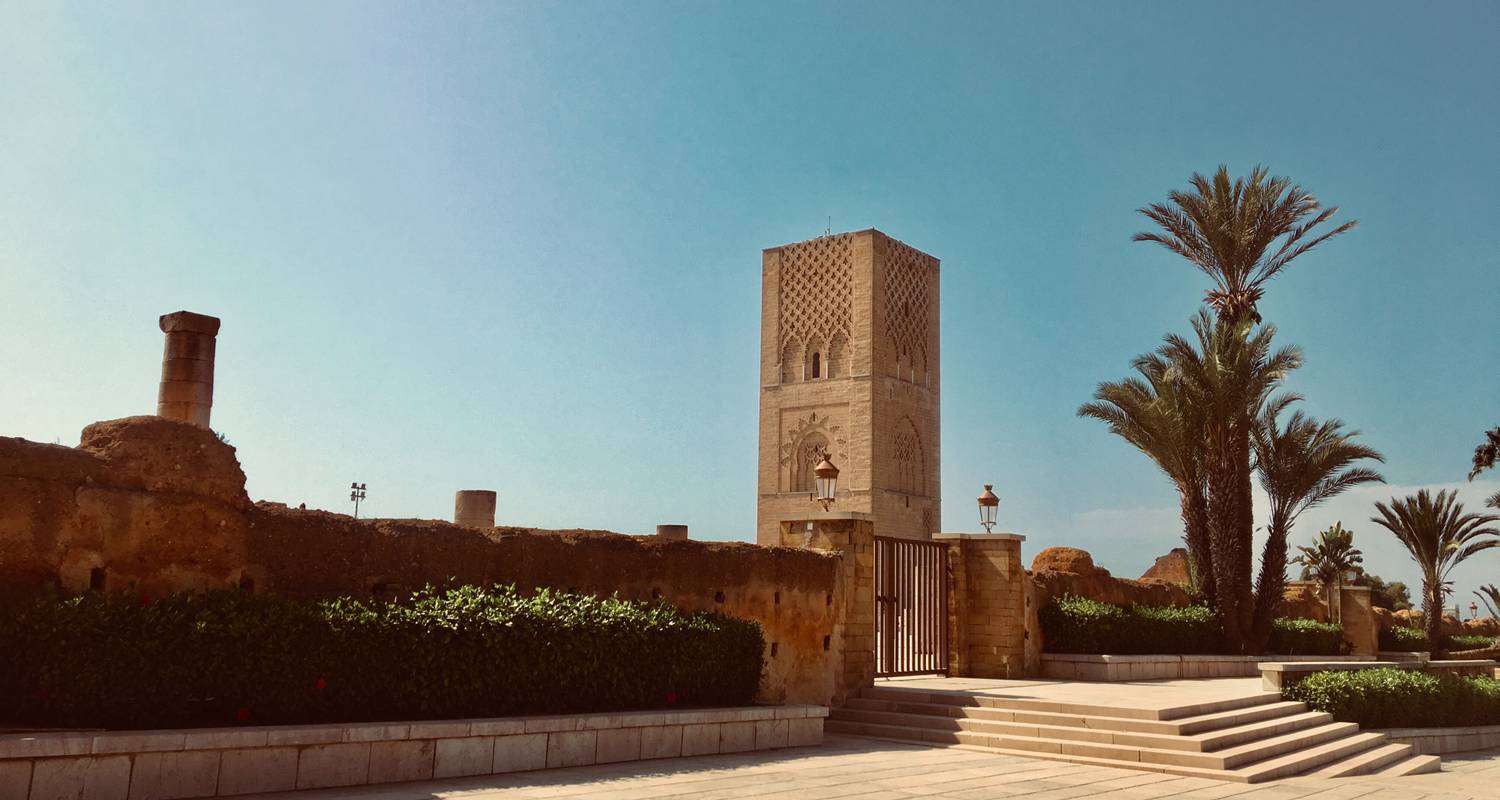
An imperial cities tour to Morocco is a round through the most historically important cities of this country—capital at one time or another, serving different dynasties throughout its rich history. This is what you will normally expect during a tour to the imperial cities:
Fes: Drive to the oldest of Morocco’s Imperial cities, considered by many to be the country’s cultural and spiritual heart. The UNESCO-listed medina is one of the largestmedieval urban areas in the world. Enter to explore the likes of the Al-Qarawiyyin Mosque and University, the Bou Inania Madrasa, and the tanneries.
Marrakech: Begin your tour in Marrakech, often called the “Red City” for its distinctive red sandstone buildings. A visit to the lively medina, which is a UNESCO World Heritage site, offers pathways to the Koutoubia Mosque, the Bahia Palace, and to the Jemaa el Fnaa square, where you will feel the real hustle of street life in Morocco.
Meknes: Visit the city of Meknes, inscribed on the UNESCO World Heritage list for its grand Moorish architecture and well preserved historic monuments. Only at the following site can you do a little exploration: the impressive Bab Mansour gate, the mausoleum of Moulay Ismail, and the vast granaries and stables of the Heri es-Souani.
Rabat: Visit the modern capital of Morocco, Rabat, which also has a rich historical heritage. Move on and take some time to visit the Udayas Kasbah, which is actually a most picturesque fortress that abuts the mighty Atlantic Ocean. You further move on to see the Hassan Tower and the Mohammed V Mausoleum, other key symbols of royalty and independence.
Optional Side Trips: On the right and left inside pages of the brochure are features that include time-allowing, during the duration of your tour. Optional side trips at this point and visit local attractions en route. These may be guided tours to the Roman ruins Volubilis, or to the photogenic town Chefchaouen with its buildings colored in blue, or maybe to the city of Essaouira—popular sea resort with a relaxed atmosphere and an artistic community.
Cultural experiences: Enjoy Moroccan cultural experiences with guided tours, culinary experiences, and meeting locals from all the places featured in your trip. Your Taste; Morocco’s traditional dish, hustling and bustling from the local markets, and guides with the best knowledge of the history and traditions of this country.
Comfortable accommodation: spend the nights in comfortable lodges and campsites, among which there are traditional riads (guesthouses) to modern hotels, offering comfortable resting to the tourists in any site city and serving as a good place to rest at the end of the day.
On transport, you will travel in air-conditioned vehicles with experienced drivers, hence comfortable and convenient travel up to every destination to be visited.
Expert Guides: Local city guides will take you up to the history, culture, and landmarks around every city to improve your appreciation of the imperial legacy of Morocco.
Flexibility and Customization: Most of the tour operators present itineraries that can always be tailor-made to fit in the interests, likings, and timings of the client during the period of imperial cities tour.
Generally, this visit brings about a truly thrilling experience of the historic past and present of the country, which reveals great architectural wonders, cultural gems, and diversified natural beauty.
Morocco's mountains and villages
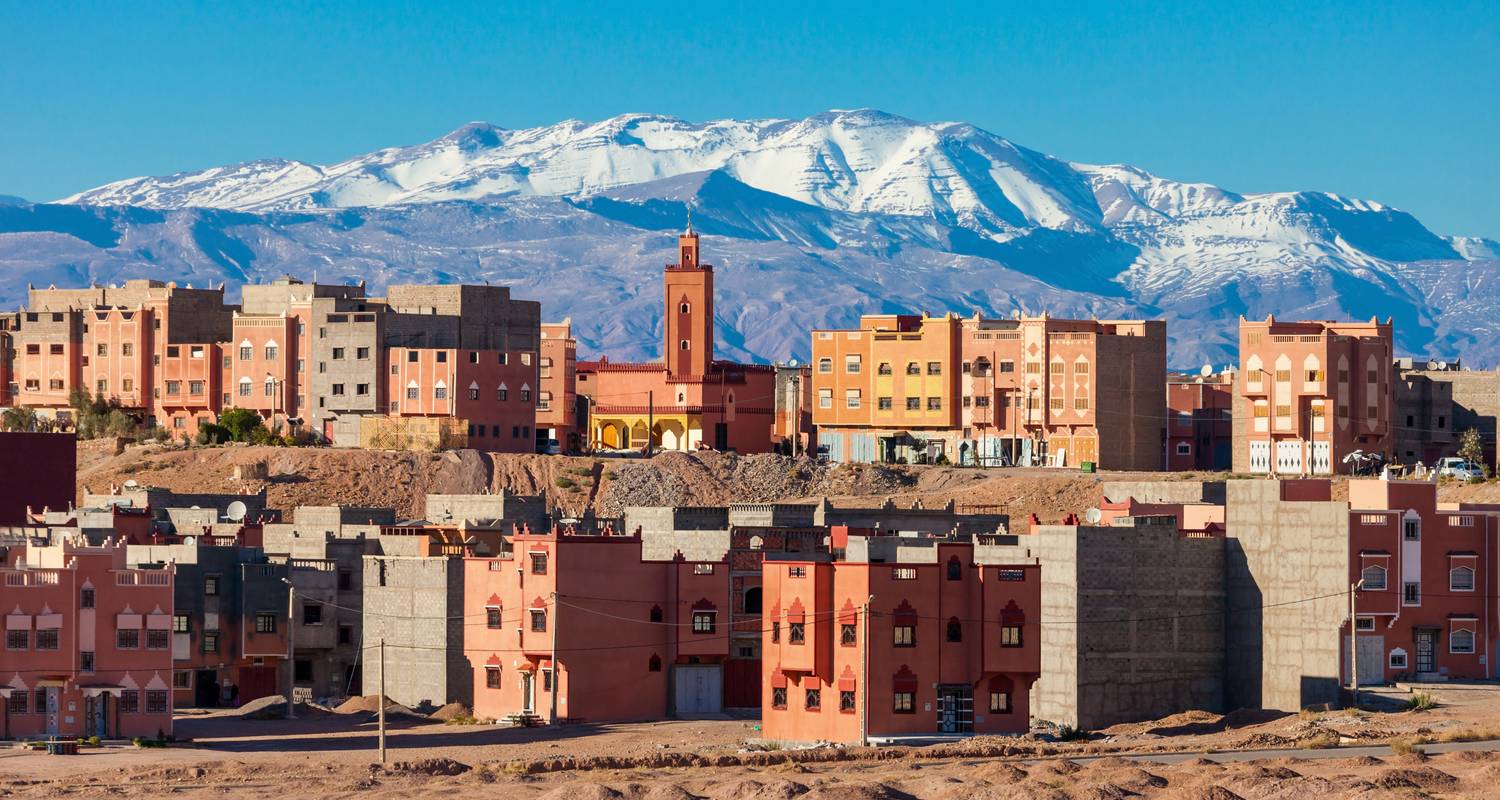
Exploring Morocco’s mountains and villages offers a rich tapestry of cultural experiences and outdoor adventures. What to expect: Tours and Activities in the mountainous areas of Morocco.
Atlas Mountains Trekking: Trek into the Atlas Mountains, which stretch along Morocco, to find breathtaking picturesque locales and avenues in which to try your hand at various outdoor leisures. Among the most popular trekking routes lies Toubkal National Park, where it is possible to summit Mount Toubkal—the highest peak in North Africa.
Visits to Berber villages: visits to Berber villages, lying in the Atlas Mountains, will allow you to get acquainted with the traditional way of living of the local people. Wander the local people, their customs, and traditions with kind-hearted hospitality in the maze streets and terraced fields of those nicest mountain communities.
Experience the warmest of homestay experiences and immersing yourself in Berber culture by staying in a remote mountain village. Homestay will allow the guest to stay at the host’s home, work daily with them during activities such as meal preparation, cleaning up, tending to domestic animals, among others, and become part and parcel of rural life rhythm in the mountain area. Drive through the Atlas Mountains, where surely the twisted mountain roads will offer panoramic views of the rugged peaks, deep valleys, and luxuriant oases. Stop at viewpoints along the way to photograph what will certainly be some of the most dramatically beautiful landscapes.
High Atlas Villages Trail – A series of hiking trails is now permanently mapped out in the High Atlas. It crisscrosses the foothills of the Atlas Mountains between many traditional Berber villages. Travel from one village to another, climbing terraced fields, orchards, and forests from one to the other, while sharing with the warm local communities.
Mountain Biking: Experience the Atlas Mountains on two wheels with a mountain bike winding through scenic trails or off-road paths with mountain biking. Ride through remote villages, crossing mountain passes, and doing some of the most scenic mountains on earth with the most exhilarating descents. Cultural Workshops: The offer of the program will include cultural workshops with hands-on activities led by Berber people involved in offering insights into their traditions and crafts. Learning traditional bread making from the expert village artisans living in mountain villages is simply amazing.
Culinary Experience: Taste the flavors of the Atlas mountains with cooking classes featuring the finest of local cuisine. You can also partake in Berber traditional cooking classes, with fresh produce of the season from mountain and valley gardens.
Mountain Markets Visits: Find the mountain souks in the center of the towns or villages, which convene every week. The population meets to sell, buy produce and livestock, and local arts and crafts. Market stalls are always bustling, and it would provide perfect photo opportunities to capture a little fun memento from while trying some of the local dishes or to buy souvenirs like handmade textiles, pottery, and spices.
Outdoor Activities: Besides those involved in biking and hiking, some other outdoor activities offered to visitors in the Atlas Mountains include rock climbing, horseback riding, and bird watching. Discover more of natural beauty features such as waterfalls and gorges, cedar forests, and many more opportunities for adventure in amazing alpine landscapes. All these tours and activities give the chance to meet locals and be among friends, participating in the rich cultural and natural heritage of the mountains and villages of Morocco. For students of archaeology and geology, Morocco offers a treasure trove of sites and landscapes to explore. Here is the suggested tailor-made itinerary along this discipline:
Roman Ruins in Volubilis: Start the journey in the morning with a visit to the site of Volubilis; one of the UNESC World Heritage Sites in the country, and at the same time, the best-preserved one can see around North Africa. You can explore ancient temples, basilicas, mosaics—all showing everything that was left from Roman influence in the area.
Fossil Hunting in Erfoud: Traverse toward Erfoud, the gateway city to the mighty Sahara Desert and, obviously, a hotspot for fossil hunting. Explore the surrounding desert with guided hikes and join an excursion to the fossil beds, where ammonites and trilobites can be found among other prehistoric treasures.
Trekking in the Atlas Mountains: This trek in the Atlas Mountains reveals much, both in earth sciences and combined with good sceneries. Analyze the mountain formations, layers of rocks, and tectonic processes while walking one valley, gorge, or high-altitude plateau to another.
Todra and Dades Gorges: In Todra and Dades Gorges, one can view the impressive formations or just have a lot of fun as the river has carved through there for thousands of years. Some of the geological features of gorges include observation of the rock layers of sedimentary rock that are within the gorge, the erosion patterns that have shaped the gorges over millions of years, and the fossil deposits found in the areas.
Sahara Desert Excursion: Spend the nights camped deep inside the Sahara Desert amidst towering sand dunes. Understand in detail about desert geomorphology, including the process of dune formation, wind erosion, and desertification, by marveling at the landscape of the deserts.
Visit the mines and quarries: visit some of the mines and quarries around Morocco, enabling one to try considering mineral deposits, techniques of mining, and geological formations. Visit all active and abandoned mines, including those of mineral bearing phosphates, copper, and silver.
Coastal Geology in Essaouira: In the trip, the students will take the privilege to travel over Essaouira at the Atlantic Coast to study the geological and marine erosion coastal activities there. Study, visualize, and explain all the characteristic features of sea cliffs and wave-cut platforms; on a larger scale, it is sedimentary rock formation as exposed along the coast, with a view to learning something about the processes of coastal geomorphology.
The Marrakech and Fes archaeological sites: present the historical archeology contained within the ancient medinas of Marrakech and Fes. To visit historic places of sites like the Saadian Tombs, the Al-Qarawiyyin Mosque, and the Medersa Bou Inania, which shall be appraised for Islamic architecture and archaeological studies.
The Paleontological Museum in Rabat: Do not miss the opportunity to visit the fantastic Moroccan Museum of Natural History, with its complete collections of fossils, minerals, and geological specimens coming from every region of the country. Survey all the exhibits of paleontology and get to understand Morocco’s rich fossil record.
Local Field Studies, Guided Tours, and Expert Lectures: Guided tours, local field studies, and expert lectures will be held or provided for by archaeologists, geologists, and experts. Learn the geological history and cultural heritage of the site from the contribution of research projects being carried out in the area of Morocco.
In a nutshell, this tailor-made tour provides students of archaeology and geology with an all-inclusive and full-perspective experience regarding field exploration and academic study at some of the most enthralling geological and archeological sites in Morocco.
Solidarity tours in Morocco
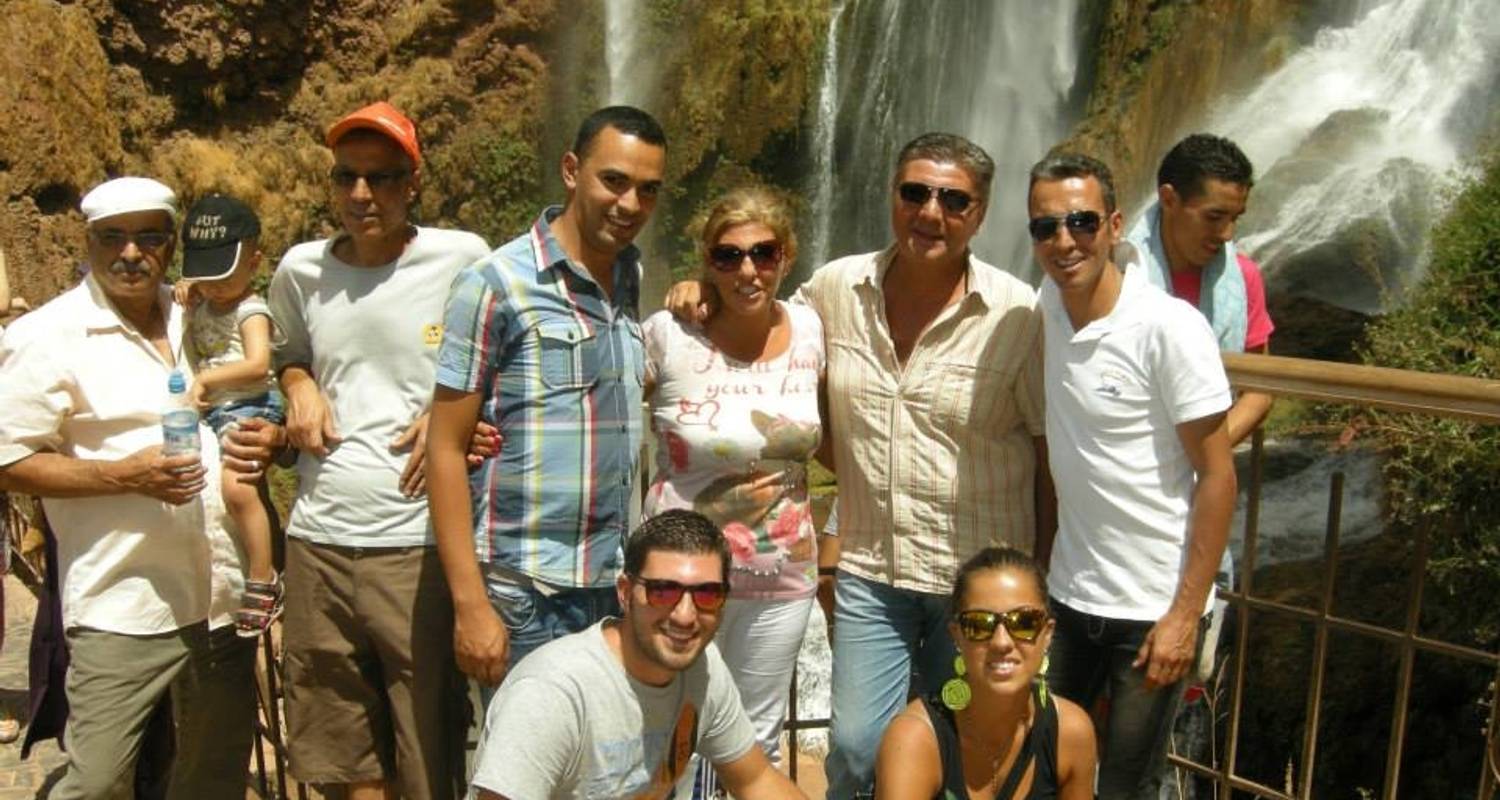
Travelling back then was volunteering during the Solidarity Tours in Morocco, where travelers would give back to the host local community while on a trip all around the country. Some of the ideas on what to do during the solidarity tours in Morocco are:
Community Development Projects: Participate in community development projects that might be in the field of education, health, sustainable infrastructure, and sustainable development. Help in school construction, repairs of community centers, and clean water projects for rural villages.
NGO Volunteering: Local nongovernmental organization (NGO) involvement all over Morocco working on community development, human rights, and environmental protection. Volunteer opportunities may include English teaching or organizing environmental cleanups but could also extend to giving healthcare service in areas most needed.
Support Women’s Coops: Visit local women’s coops that provide them skills training in weaving, pottery, or even production of argan oil to help them generate their own revenue. Buy from them directly and help support their economic empowerment through the purchase of the items they produce.
Organic Farming and Permaculture: Work for volunteer in organic farm or permaculture projects for sustainable agriculture and conserve environment. Volunteer will experience traditional farming practice, including cropping, planting, and harvesting the crops, while involving in eco-friendly practices.
Wildlife Conservation: Those who seek a career in wildlife conservation would find an opportunity to serve as a volunteer in some of the organizations that take measures to protect threatened species and natural habitats within the country. Such measures may include anything from monitoring the population of the wildlife, researching for information related to wildlife, or carrying out habitat restoration projects.
Exchange Programs: Engage in cultural exchange programs that will help develop mutual understanding and friendship between travelers and local communities. Staying in rural village homestays with host families, participation in cultural activities, getting to know about Moroccan traditions, cuisine, and life.
Supporting Refugees and Migrants: Support organizations providing humanitarian assistance in support of refugees and migrants in Morocco, mainly pouring in from Sub-Saharan Africa in search of better opportunities. Volunteer opportunities may include services ranging from providing food, shelter, and medical care to legal and educational support.
Eco-Tourism Initiatives: Participate in eco-tourism initiatives. Stay in friendly places, visit protected areas mainly focusing on nature, and even gather information on the conservation activities undertaken to keep the biodiversity of Morocco safe.
Youth Empowerment Programs: Strengthen and improve youth empowerment programs in such a manner that they offer not only education but also vocational training, complemented by opportunities for leadership development, to underprivileged youth in the country. Be a mentor or tutor volunteer in the workshop of the youth.
Solidarity Trekking Expeditions: Volunteer for the Solidarity Trekking Expeditions where outdoor adventure is fused with community service. The traveler is treated to trekking through the stunning landscape, camping in wilderness areas, and working with community-based projects on their way: all of which is meaningful and rewarding to the traveler, whilst assuring them that their travel truly makes a difference for a good cause and a positive social impact, securing sustainable development in Morocco.
From interests in education and health care to the environment and community empowerment, there are quite a number of travel opportunities that Morocco affords you to get involved in such and many others as you even sample the beauty and culture of the country.
